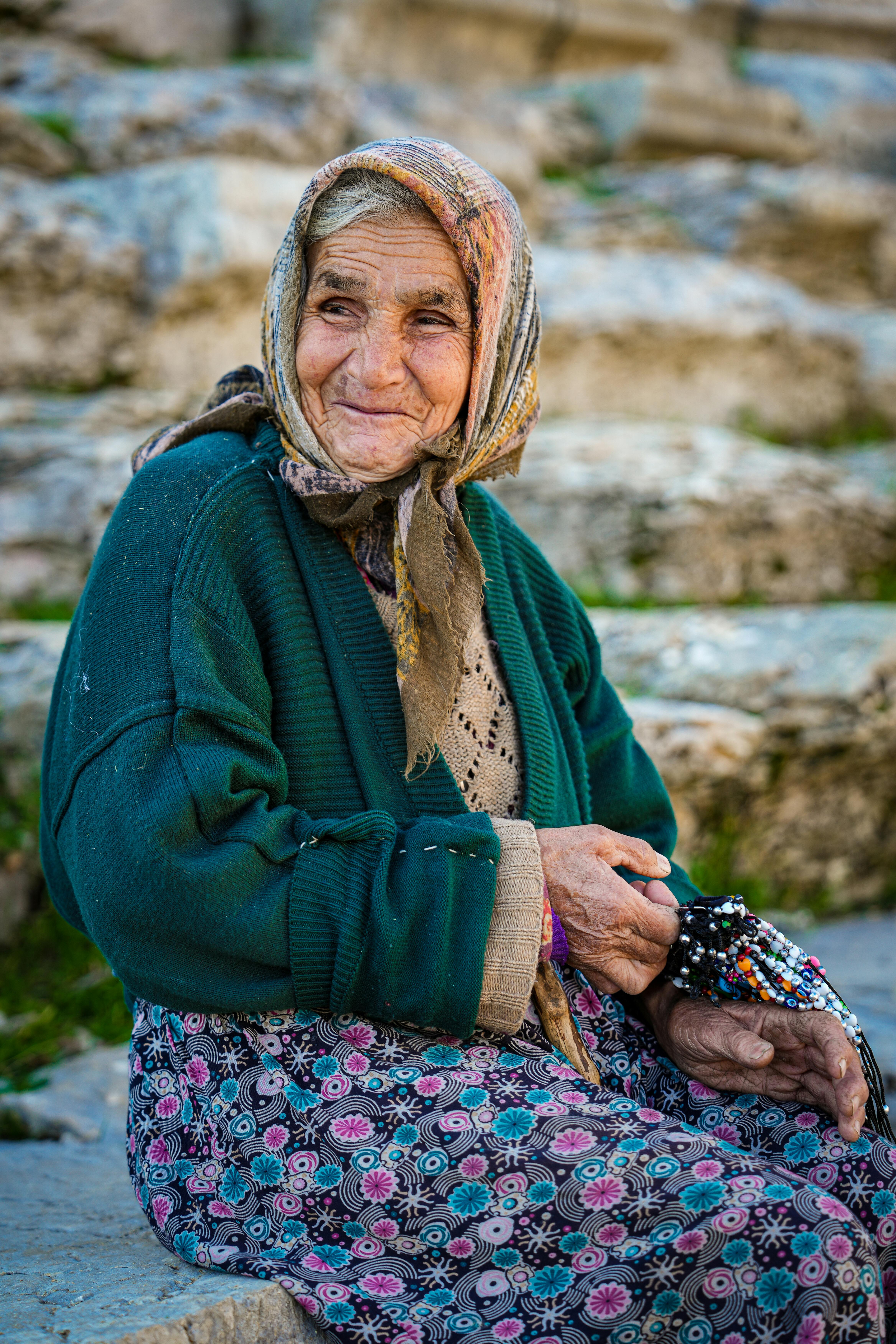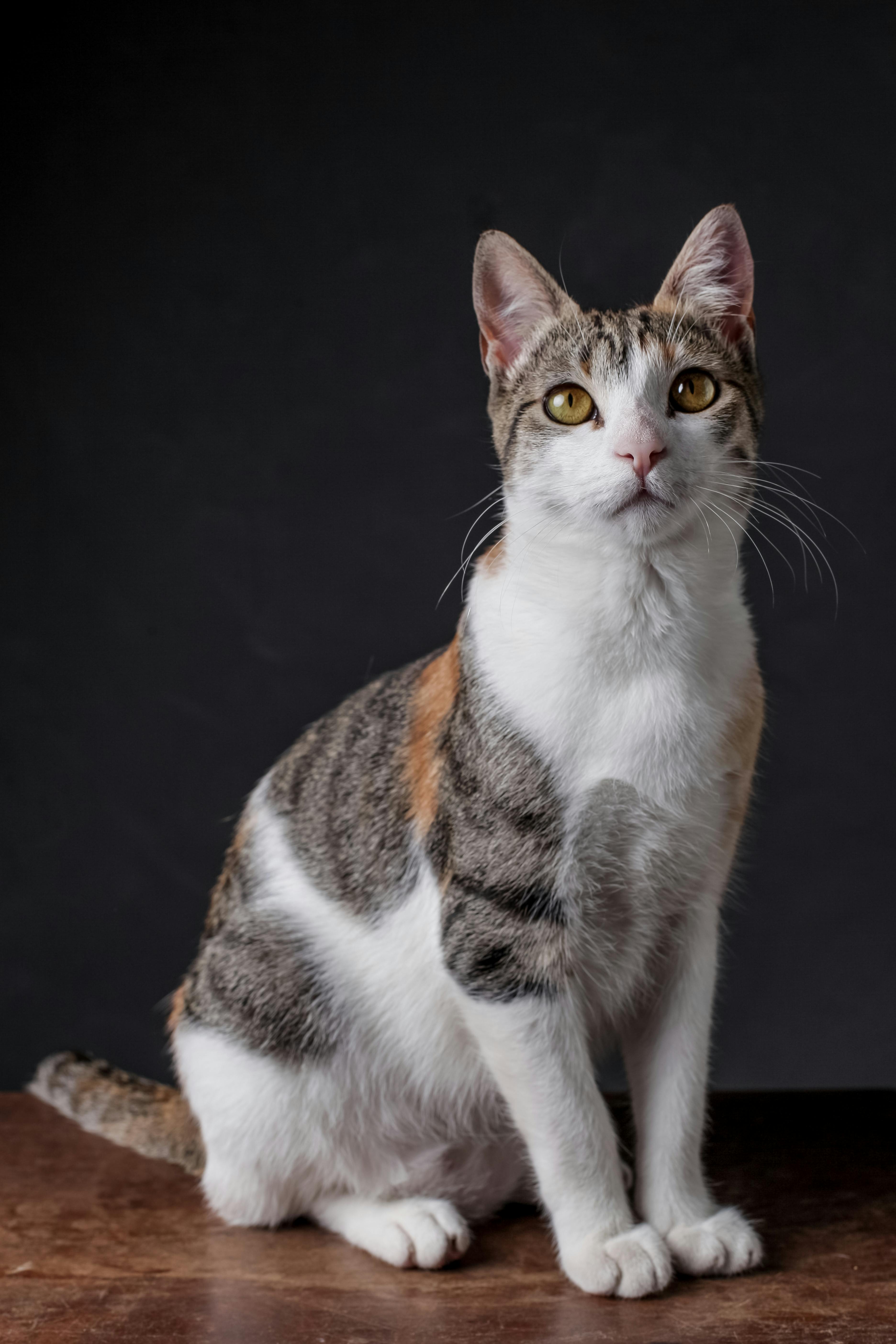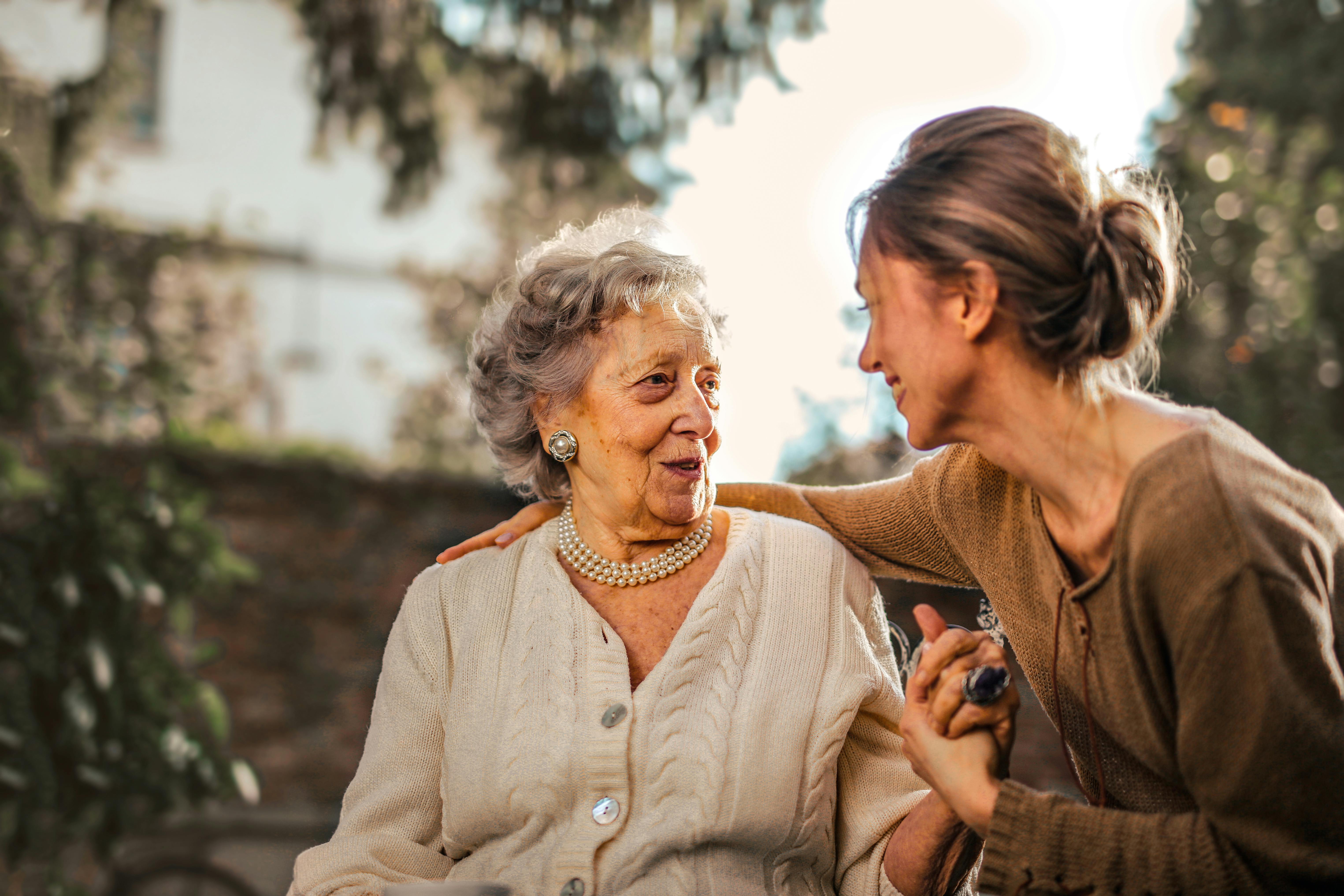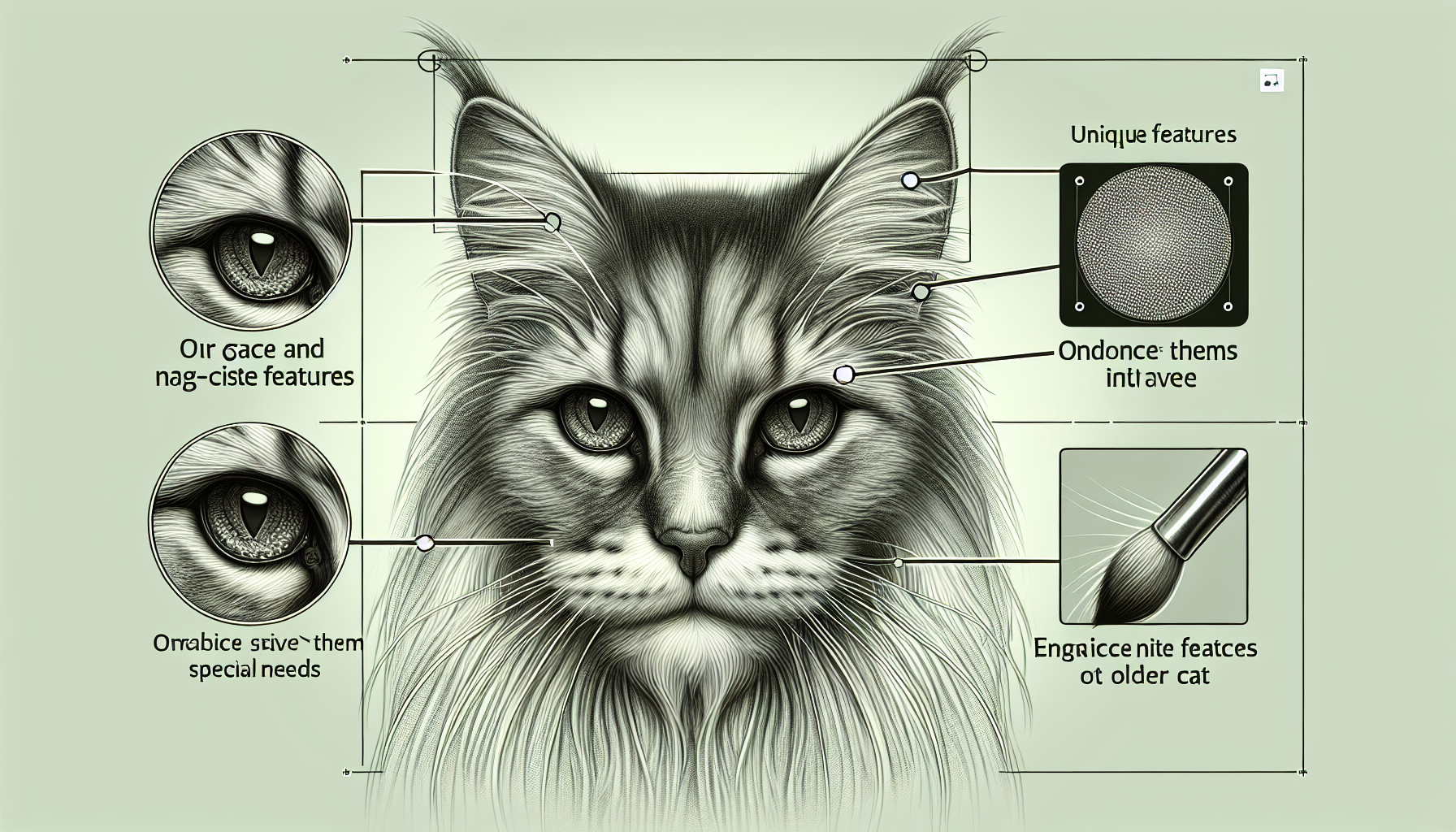As your beloved feline companion gracefully ages, it’s important to understand and cater to their unique needs. In this article, we will explore proven methods to care for your senior cat and navigate the challenges that come with this stage of their life. From maintaining their overall health and wellbeing to addressing common ailments, you’ll discover valuable insights and practical tips to provide the best possible care for your older furry friend.
Understanding the Aging Process in Cats
As a cat owner, it is essential to have a comprehensive understanding of the aging process in cats. Knowing your cat’s age and the changes that occur as they get older can help you provide the appropriate care and support they need. By familiarizing yourself with the biological changes in senior cats and the stages of the aging process, you can better understand their evolving needs and ensure their overall well-being. Additionally, understanding the effects of aging on a cat’s behavior is crucial for maintaining a strong bond and addressing any behavioral changes that may arise.
Significance of knowing your cat’s age
Knowing your cat’s age is the first step in providing appropriate care for your furry friend. Cats age differently than humans, and their needs change as they grow older. By determining your cat’s age, you can better anticipate any health issues that might arise and make necessary adjustments to their diet, exercise routine, and veterinary care. Age is a significant factor in managing your cat’s health and will help you tailor their care to meet their specific needs.
Biological changes in senior cats
As cats age, several biological changes occur in their bodies. These changes can affect their overall health and well-being. Common biological changes in senior cats include a decrease in muscle mass, changes in metabolism, and a decline in organ function. It is essential to be aware of these changes to provide the necessary support and medical care for your cat as they age.
Stages of cat aging process
The aging process in cats can be divided into different stages. These stages serve as a guideline to understand the progression of age-related changes in cats. The first stage, known as early adulthood, usually occurs between one to six years of age, where cats are at their peak physical condition. Middle-aged cats, between seven to ten years old, experience slight age-related changes. Finally, cats over the age of ten are considered seniors and undergo more significant physical and behavioral changes. Understanding the different stages of the aging process can help you identify and address specific age-related issues your cat may be facing.
Effects of aging on a cat’s behavior
Aging can have a noticeable impact on a cat’s behavior. As cats get older, you may observe changes in their sleep patterns, increased vocalization, loss of appetite, and decreased activity levels. It is essential to understand that these behavioral changes are a natural part of the aging process and can be managed with proper care and support. By recognizing and addressing changes in behavior, you can ensure your senior cat’s mental well-being and provide a comfortable and enriching environment for them to thrive.
Common Health Problems in Older Cats
As cats age, they become more susceptible to various health problems. It is crucial to be aware of these common health issues to provide timely medical intervention and ensure a high quality of life for your senior cat. Recognizing the signs of illness and the importance of regular vet check-ups are essential in managing age-related health problems effectively.
Types of frequent health issues
Common health issues in older cats include dental disease, arthritis, kidney disease, hyperthyroidism, and diabetes. Dental disease often occurs in senior cats, leading to tooth decay, gum inflammation, and potential infections. Arthritis is another prevalent health problem, causing joint pain and mobility issues. Kidney disease, hyperthyroidism, and diabetes are systemic diseases that can affect the overall health and well-being of senior cats. Understanding these common health issues allows you to watch for signs and seek appropriate veterinary care when necessary.
Recognizing signs of illness
Recognizing the signs of illness in your senior cat is crucial in providing early intervention and preventing the progression of serious health problems. Common signs of illness in older cats include changes in appetite, weight loss or gain, lethargy, increased thirst, changes in urination habits, vomiting, diarrhea, and changes in grooming habits. By paying close attention to your cat’s behavior and monitoring any changes, you can identify potential health issues and seek veterinary care promptly.
Importance of regular vet check-ups
Regular veterinary check-ups are essential for maintaining your senior cat’s health and detecting any underlying health problems early on. Your veterinarian can perform a comprehensive examination, assess your cat’s overall well-being, and address any concerns you may have. These regular check-ups are an opportunity to discuss your cat’s diet, exercise routine, and any changes in behavior or health. Your veterinarian can also recommend preventive measures and treatments for age-related health issues, ensuring your cat’s optimal health and comfort.
Managing age-related health problems
Managing age-related health problems requires a proactive approach and close collaboration with your veterinarian. Depending on the specific health issue your senior cat is facing, your veterinarian may recommend treatments such as dental cleanings, pain management for arthritis, specialized diets for kidney disease or hyperthyroidism, and insulin injections for diabetes. Providing the necessary medical care and support for your senior cat’s health issues will significantly improve their quality of life and overall well-being.
Nutritional Needs of Senior Cats
As cats age, their nutritional needs change. It is crucial to adjust their diet accordingly to support their aging bodies and promote optimal health. By selecting the right cat food for older cats and incorporating appropriate supplements, you can ensure that your senior cat receives the necessary nutrients and maintains proper hydration.

Changing dietary requirements
Senior cats have different dietary requirements compared to their younger counterparts. They require a diet that is lower in calories and higher in proteins to help maintain muscle mass and support overall health. Additionally, older cats may benefit from increased levels of essential nutrients such as vitamins E and C, omega-3 fatty acids, and antioxidants to support their aging immune systems. Understanding these changing dietary requirements can help you make informed decisions when choosing the appropriate cat food for your senior cat.
Choosing the right cat food for older cats
Selecting the right cat food for your senior cat is crucial for their overall health and well-being. Look for cat food specifically formulated for senior cats, as these diets are tailored to meet their unique nutritional needs. Consider brands that offer high-quality protein sources, essential nutrients, and ingredients that promote joint health and support the immune system. Consulting with your veterinarian can provide valuable guidance in choosing the most suitable cat food for your senior cat’s specific dietary needs.
Supplements for senior cats
In addition to a balanced and nutritious diet, supplements can play a beneficial role in supporting the health of senior cats. Common supplements for senior cats include joint support supplements containing glucosamine and chondroitin to promote mobility and alleviate arthritis symptoms. Omega-3 fatty acids supplements can help support skin and coat health as well as reduce inflammation. Discussing the use of supplements with your veterinarian is essential to ensure their appropriateness and effectiveness for your senior cat’s individual needs.
Maintaining proper hydration
Ensuring proper hydration is essential for senior cats, as they may be more prone to dehydration. Provide your cat with fresh and clean water at all times, and consider incorporating wet cat food into their diet. Wet food has a higher moisture content and can help boost your senior cat’s hydration levels. If your senior cat struggles with drinking enough water, consult with your veterinarian about alternative methods, such as using a water fountain or adding water to their wet food.
Physical Exercise for Senior Cats
Physical exercise is crucial for maintaining your senior cat’s overall health and well-being. While older cats may have decreased energy levels and mobility, it is essential to provide them with regular opportunities for physical activity. By adapting play sessions, choosing appropriate toys, and addressing any mobility issues, you can ensure that your senior cat remains active and mentally stimulated.
Importance of keeping your cat active
Keeping your senior cat active is vital for their physical and mental health. Regular exercise helps maintain muscle tone, promotes joint mobility, and prevents obesity. Physical activity also provides mental stimulation, enhances mood, and strengthens the bond between you and your cat. Even though your senior cat may not be as energetic as when they were younger, engaging in regular play sessions is crucial for their overall well-being.
Adapting play sessions for older cats
As cats age, their play needs and preferences may change. It is essential to adapt play sessions to accommodate your senior cat’s physical abilities and limitations. Opt for shorter play sessions instead of lengthy, intense activities. Choose toys that are easy for your cat to grip and manipulate, such as soft toys or puzzle toys that dispense treats. Tailor play sessions to your cat’s interests and abilities, and always provide positive reinforcement and praise to keep your senior cat engaged.
Recommended toys for senior cats
When selecting toys for your senior cat, focus on those that encourage mental stimulation and gentle exercise. Puzzle toys can help keep your cat’s mind active, while interactive toys that mimic hunting behavior can provide both mental and physical stimulation. Toys with feathers or strings can also engage your senior cat’s natural hunting instincts. However, always supervise playtime to ensure your cat’s safety and prevent any accidental injuries.
Dealing with cat mobility issues
Mobility issues are common in older cats, particularly those suffering from arthritis or other joint-related conditions. If your senior cat experiences difficulty in moving or jumping, providing them with accessible perches, ramps, and stairs can help them navigate their environment more comfortably. Soft bedding in warm and cozy areas can also alleviate discomfort and provide relief for achy joints. Consult with your veterinarian for additional strategies to address your cat’s specific mobility challenges.
Managing Weight in Senior Cats
Maintaining a healthy weight is crucial for the overall health and well-being of senior cats. Obesity can lead to numerous health problems and worsen existing conditions. By understanding the risks of obesity, following proper feeding guidelines, monitoring your cat’s weight, and supporting weight management, you can help your senior cat maintain a healthy and balanced lifestyle.
Risks of obesity in older cats
Obesity poses significant health risks for senior cats. It can exacerbate existing health conditions such as arthritis, diabetes, and heart disease. Additionally, obesity puts additional strain on your cat’s joints and internal organs, leading to reduced mobility and overall decreased quality of life. By managing your senior cat’s weight, you can help prevent these health issues and improve their overall well-being.

Proper feeding guidelines
Following proper feeding guidelines is crucial for maintaining your senior cat’s weight. Consult with your veterinarian to determine the appropriate amount of food your cat should be consuming based on their age, weight, and activity level. Avoid overfeeding or free-feeding, as this can contribute to weight gain. Consider feeding your cat smaller, more frequent meals throughout the day to help manage their weight and prevent obesity.
Signs of unhealthy weight loss
While obesity is a concern, unhealthy weight loss can also be a problem in older cats. Sudden or significant weight loss can indicate underlying health issues or malnutrition. Monitor your senior cat’s weight regularly and consult with your veterinarian if you notice any unexplained weight loss. Your veterinarian can assess your cat’s health and provide guidance on diet adjustments or further diagnostic testing if necessary.
Supporting weight management
Supporting weight management in senior cats involves a combination of proper diet and exercise. Ensure that your cat is receiving a balanced and nutritious diet, tailored to their specific dietary needs. Incorporate portion control and feeding strategies recommended by your veterinarian. Encourage regular exercise through play sessions and stimulating toys. Consistency and regular monitoring of your senior cat’s weight will help maintain their optimal health and prevent obesity-related issues.
Mental Health and Cognitive Function
Cognitive changes are a natural part of the aging process in cats. However, it is essential to understand the potential impacts of cognitive dysfunction syndrome (CDS) and take proactive measures to support your senior cat’s mental health. Engaging in activities that stimulate your cat’s mind, recognizing changes in behavior, and understanding the effects of aging on mental health can help maintain your cat’s cognitive function for as long as possible.
Dealing with cognitive dysfunction syndrome
Cognitive dysfunction syndrome (CDS) is a condition that affects senior cats, similar to Alzheimer’s disease in humans. Cats with CDS may experience memory loss, disorientation, changes in sleep patterns, increased anxiety, and altered social interactions. While there is no cure for CDS, there are strategies to manage the symptoms and slow down its progression. Consult with your veterinarian if you suspect your senior cat is experiencing cognitive changes to discuss potential treatment options and lifestyle adjustments.
Activities to stimulate your cat’s mind
Engaging in activities that stimulate your senior cat’s mind is vital for their cognitive function. Puzzle toys, treat-dispensing toys, and interactive play sessions can help keep your cat’s mind active and engaged. Creating a stimulating environment with scratching posts, hiding spots, and vertical spaces can also provide mental stimulation. Regular play sessions, social interaction, and positive reinforcement can further promote your senior cat’s mental well-being.
Understanding changes in behavior
As cats age, it is common for their behavior to change. Understanding these changes and differentiating between normal age-related behavior and potential underlying health issues or cognitive decline is crucial. Changes in litter box habits, increased vocalization, aggression, decreased interest in grooming, and changes in sleep patterns can indicate potential issues that require veterinary attention. Properly observing and acknowledging any changes in behavior will help you address any concerns and provide appropriate care for your senior cat.
Effects of aging on mental health
Aging can have a significant impact on a cat’s mental health. Cats may become more anxious, confused, or agitated as they age. Pay attention to your senior cat’s social interactions, general mood, and overall demeanor. Provide a calm and stress-free environment, maintain regular routines, and offer familiar and comforting spaces for your senior cat to retreat to. Ensuring a supportive and understanding environment will positively influence your senior cat’s mental well-being and overall quality of life.
Grooming Your Senior Cat
Proper grooming is essential for your senior cat’s hygiene and overall well-being. Older cats may experience changes in their grooming habits, making it necessary for you to assist them in maintaining good grooming practices. By establishing a regular brushing and combing routine, addressing nail care, and ensuring appropriate dental care, you can keep your senior cat clean, comfortable, and healthy.
Changes in grooming habits of older cats
Older cats may experience changes in their grooming habits due to factors such as decreased flexibility, arthritis, or cognitive decline. Cats may have difficulty reaching certain areas of their body or may develop matted fur due to decreased self-grooming. As a result, it is essential for cat owners to assist their senior cats in maintaining proper grooming practices to prevent skin issues and discomfort.
Regular brush and comb routine
Establishing a regular brush and comb routine is crucial for maintaining your senior cat’s coat health. Brushing helps remove loose fur, prevents matting, and distributes natural oils throughout the coat. Use a comb or brush suitable for your cat’s fur type and ensure gentle and patient handling during the grooming process. Pay attention to sensitive areas such as the abdomen, underarms, and hind end, which may benefit from additional care and attention.

Proper nail care
Nail care is essential in senior cats, as their nails can become overgrown and lead to discomfort or potential injuries. Regularly trim your cat’s nails to an appropriate length using cat-specific nail clippers or grinders. If you are not comfortable trimming your cat’s nails, consider seeking professional help from a groomer or veterinarian. Additionally, provide scratching posts and horizontal scratchers to help your senior cat naturally maintain their nails and promote proper scratching behavior.
Dental care for senior cats
Dental care is crucial for your senior cat’s overall health. Older cats are more prone to dental issues such as periodontal disease and tooth decay. Establishing a dental care routine, including regular brushing with cat-specific toothpaste and regular dental check-ups with your veterinarian, is vital in maintaining your senior cat’s oral health. Dental treats or toys specifically designed to promote dental hygiene can also be incorporated into your cat’s routine with the guidance of your veterinarian.
Making Your Home Senior Cat-Friendly
Adapting your home to cater to the needs of your senior cat is essential for their comfort and well-being. Making small adjustments and accommodations can greatly improve their quality of life, especially if they have mobility issues or suffer from arthritis. By focusing on special accommodations, making litter box adaptations, and ensuring a stress-free environment, you can create a safe and welcoming space for your senior cat.
Adapting your home for an older cat
Adapting your home for an older cat involves making changes to meet their specific needs. Consider providing ramps or steps to help your senior cat navigate higher surfaces such as beds or couches. Create cozy spaces with comfortable bedding and warm areas for them to rest. Minimize loud noises and create a calm environment to reduce stress levels. By making these simple adjustments, you can ensure that your senior cat feels safe and comfortable in their home.
Special accommodations for cats with arthritis
Cats with arthritis require special accommodations to alleviate pain and discomfort. Provide gentle and easily accessible perches or beds for your senior cat to rest comfortably. Place litter boxes on the main level of your home to avoid the need for your cat to climb stairs. Consider providing heated beds or blankets to soothe their joints. Consulting with your veterinarian for additional strategies, such as joint supplements or pain management medications, can also help support senior cats with arthritis.
Making litter box adaptations
Making litter box adaptations is crucial for senior cats, as they may have difficulty accessing or using traditional litter boxes. Provide litter boxes with lower sides, allowing easier entry and exit. Place litter boxes in quiet and private areas where your senior cat can eliminate without disturbances. Ensure that litter boxes are easily accessible without the need to climb stairs or navigate obstacles. Regularly clean and maintain the litter boxes to promote good litter box habits and prevent discomfort or avoidance.
Ensuring a stress-free environment
Creating a stress-free environment is essential for senior cats, as they may become more sensitive to changes or disruptions. Minimize loud noises, create calm spaces with comfortable bedding, and provide hiding spots where your cat can retreat to when feeling overwhelmed. Establish consistent routines for feeding, playtime, and social interactions to provide a sense of security and reduce anxiety. By promoting a stress-free environment, you can support your senior cat’s emotional well-being and enhance their overall quality of life.
End-of-Life Care and Decision Making
End-of-life care and decision making are challenging aspects of owning a senior cat. Understanding the signs of a cat nearing end-of-life, providing comfort and palliative care, making difficult decisions, and coping with the loss of your feline companion are all important components of this stage in your cat’s life.
Recognizing signs of a cat nearing end-of-life
Recognizing the signs that your cat is nearing the end-of-life stage is crucial for providing appropriate care and support. These signs may include a significant decline in appetite, weight loss, increased weakness or lethargy, difficulty breathing, loss of interest in activities, or significantly altered behavior. If you observe any of these signs, it is essential to consult with your veterinarian to discuss your cat’s condition and determine the most appropriate course of action.
Providing comfort and palliative care
Providing comfort and palliative care for your senior cat during their end-of-life stage is paramount. This can include ensuring a quiet and peaceful environment, maintaining their hygiene and cleanliness, providing pain management medications if necessary, and engaging in gentle and soothing interactions. Regularly assess your cat’s comfort level and consult with your veterinarian for additional support or guidance in managing their end-of-life care.
Making difficult decisions
Making difficult decisions regarding your senior cat’s end-of-life care is emotionally challenging but necessary. Working closely with your veterinarian, you may need to consider humane euthanasia if your cat’s quality of life has significantly declined, they are experiencing severe pain or suffering, and medical interventions are no longer effective or feasible. It is crucial to consider the well-being and comfort of your cat above all else when making these difficult decisions.
Coping with the loss of your feline companion
Losing a feline companion is a heartbreaking experience. Coping with this loss involves giving yourself time to grieve and seeking support from loved ones or support groups who understand the unique bond between an owner and their pet. Remembering the happy moments, cherishing the memories, and creating a lasting tribute to your beloved senior cat can help in the healing process. Consider commemorating your cat’s life through activities such as creating a photo album, planting a memorial garden, or donating to a local animal shelter in their honor.
Maintaining Quality of Life for Your Senior Cat
Maintaining your senior cat’s quality of life involves a holistic approach, integrating regular vet visits, balancing diet and exercise, providing mental and emotional support, and monitoring changes to adjust care accordingly. By focusing on these aspects, you can ensure that your senior cat enjoys their golden years to the fullest.
Importance of regular vet visits
Regular veterinary visits are the cornerstone of maintaining your senior cat’s quality of life. These visits provide an opportunity for your veterinarian to assess your cat’s overall health, address any concerns, and provide preventive care. Routine vaccinations, teeth cleanings, bloodwork, and screenings can help identify any potential health issues early on and ensure your senior cat’s optimal well-being.
Balancing diet and exercise
Finding the right balance between diet and exercise is crucial for your senior cat’s overall health. Providing a well-balanced and nutritious diet tailored to their specific needs, ensuring portion control, and considering supplements can help support their aging bodies. Incorporating physical exercise through play sessions, appropriate toys, and environmental enrichment will contribute to maintaining muscle tone, joint mobility, cognitive function, and mental stimulation.
Providing mental and emotional support
Senior cats require mental and emotional support to maintain their overall well-being. Providing a calm and stress-free environment, maintaining routines, engaging in interactive play sessions, and offering social interaction can have a positive impact on your senior cat’s mental health. Pay attention to their behavior, monitor changes, and ensure that they feel safe, secure, and loved.
Monitoring changes and adjusting care as needed
As your senior cat continues to age, it is essential to monitor any changes in their health, behavior, or overall well-being. Stay observant and vigilant, and seek veterinary care if you notice any concerning signs or symptoms. Regularly reassess your cat’s diet, exercise routine, and environmental adaptations to ensure they are receiving the best possible care tailored to their individual needs. By monitoring changes and adjusting their care as necessary, you can continue to provide a high quality of life for your senior cat throughout their golden years.
In conclusion, caring for your senior cat involves understanding the aging process, recognizing common health problems, addressing nutritional needs, providing physical and mental stimulation, managing weight, maintaining grooming routines, adapting your home, considering end-of-life care, and prioritizing their overall quality of life. By taking a comprehensive approach and providing love, attention, and appropriate care, you can ensure that your senior cat remains happy, healthy, and cherished throughout their aging journey.

